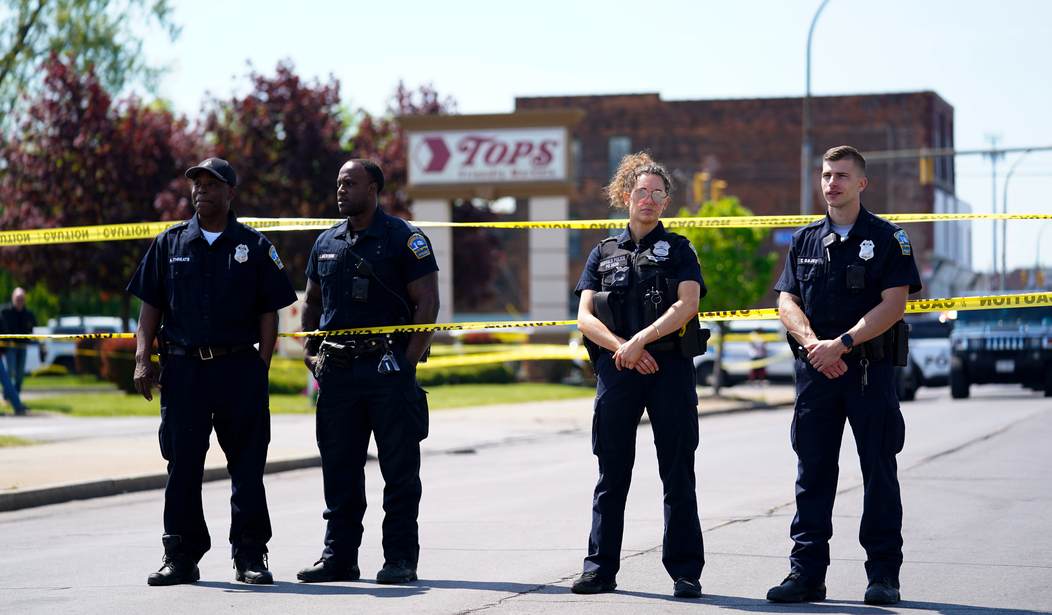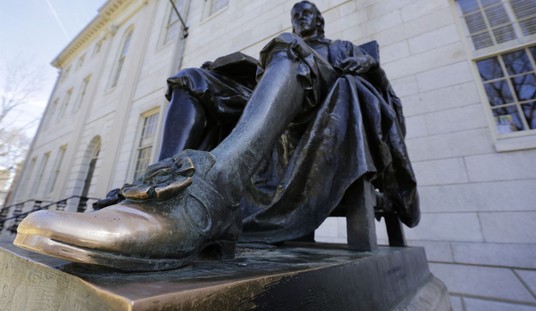The one thing about the government that is true in most cases is that it will often work to protect officials who abuse their authority. This is especially applicable when it comes to law enforcement, which routinely tries to shield its officers from responsibility for their wrongdoing. But sometimes, the Constitution prevents these agencies from avoiding accountability.
The 4th U.S. Circuit Court of Appeals issued a ruling on Tuesday that a North Carolina town’s policy that allegedly bars civilians from livestreaming police officers during traffic stops was a violation of the First Amendment. In the case of Sharpe v. Winterville Police Department, the court ruled in favor of the plaintiff.
The Hill reported:
The ruling stated that Dijon Sharpe was live-streaming his traffic stop on Facebook Live when police officer Myers Helms attempted to take his phone away because he said live-streaming threatened his safety. Sharpe then sued the Winterville police officers in their official capacity for having a policy that violates the First Amendment, and also sued Helms individually.
The district court did not find that the policy violated the First Amendment and dismissed the individual complaint against Helms under qualified immunity, according to the ruling.
The appeals court vacated the district court’s decision, arguing that if there is a policy that prohibits people from livestreaming their encounters with law enforcement, it constitutes a violation of the First Amendment. The court also noted that filming officers can provide important information in the same way that bodycam footage does.
“Recording police encounters creates information that contributes to the discussion about governmental affairs,” the ruling said. “So too does livestreaming disseminate that information, often creating its own record. We thus hold that livestreaming a police traffic stop is speech protected by the First Amendment.”
The appeals court decided that Sharpe’s claim can proceed. Now, his lawyers must offer evidence that Winterville does, indeed, have a policy against livestreaming police officers. If the plaintiff can make this case, the town will have to show that the policy does not infringe on the First Amendment.
The plaintiff also argued that the individual officer should be held accountable for violating his Constitutional right to freedom of expression. However, the judge argued that the officer was protected under qualified immunity.
“On the other hand, although Officer Helms was allegedly acting under the policy that plausibly violates the First Amendment, Sharpe’s claim against him in his personal capacity fails,” the ruling noted. “It was not clearly established that Officer Helms’s actions violated Sharpe’s First Amendment rights and so he is protected by qualified immunity.”
This is the latest of a series of cases in which city and state governments have attempted to enact measures designed to limit civilians filming police encounters. In August last year, the American Civil Liberties Union (ACLU) filed a lawsuit against Arizona for a law making it a crime to record officers within eight feet of police activity. “Specifically, it prohibits people from recording police if they are within eight feet of an area where the person ‘knows or should reasonably know’ law enforcement activity is happening,” according to the ACLU, which also referred to the law as a “blatant attempt to gut First Amendment protections for recording police.”
The ACLU also noted that in the legislation, “law enforcement activity” is broadly defined as “enforcing the law.” It also pointed out a flaw in the law, arguing that a law enforcement officer could “create the crime” by moving closer to the person recording the encounter and getting within eight feet of the individual.
Fortunately, in September, a federal judge blocked enforcement of the law on First Amendment grounds. “The quick decision came after Republican Arizona Attorney General Mark Brnovich and the prosecutor and sheriff’s office in Maricopa County told the judge they did not plan to defend the law,” according to NBC News.
There are many other examples of governments attempting to prevent civilians from recording police encounters. Now that almost everyone has a camera in their pocket, it has brought even more attention to malfeasance committed by corrupt officers, as in the case of Derek Chauvin when he knelt on the neck of George Floyd. The cell phone footage went viral and elicited nationwide outrage.
Depriving civilians of the right to document the actions of the officers charged with protecting and serving their communities is nothing more than an effort to make it easier for these officials to shirk responsibility for their actions. Anything that prevents accountability on the part of government officials only makes it easier for the state to become tyrannical. Indeed, it is rare for officers to be convicted of crimes even with footage taken by civilians. How much worse would it be if each scenario in which an officer abuses their authority were relegated to a “he said, she said,” situation?
In this case, the court made the right call. If Winterville does indeed have a policy empowering police officers to prevent people from filming them, then they should be held accountable. However, if qualified immunity protects these individuals from reaping the consequences of their actions, it will be even harder to make them liable for their actions when they violate the Constitutional rights to which civilians are entitled.














